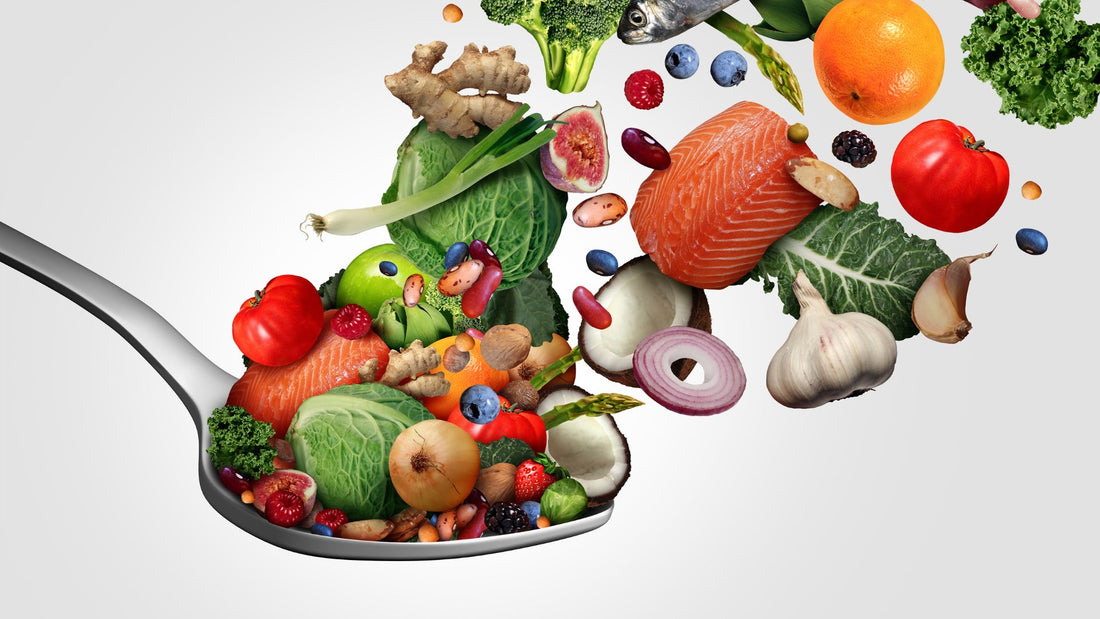
Diet for runners: What you should eat to perform at your best
Share
A good diet is one of the most important factors in achieving optimal performance and recovery as a runner. What you eat before, during and after running can have a significant impact on your energy levels, endurance and how quickly your body recovers from exercise. In this blog post, we'll go over nutrition tips for runners, including what to eat before, during and after exercise to ensure you perform at your best.
Before training
1. Carbohydrates: Your most important source of energy
Carbohydrates are the body's preferred energy source during running. Eating a meal rich in carbohydrates 2-3 hours before a workout can help replenish your glycogen stores, which provide energy for your muscles.
Examples of carbohydrate-rich meals:
- Oatmeal with banana and honey
- Wholemeal bread with avocado and egg
- Smoothie with berries, yogurt and oatmeal
2. Hydration: Start well hydrated
Being well hydrated before you start running is essential to maintain performance and prevent dehydration. Drink plenty of water before training, especially in the last few hours before you run.
Tips for hydration:
- Drink 500-600 ml of water 2-3 hours before training.
- Take small sips of water up to 30 minutes before you start running.
3. Easily digestible snacks: Energy right before the run
If you don't have time for a full meal, or if several hours have passed since your last meal, you can eat a light snack 30-60 minutes before you run.
Examples of snacks:
- A banana
- An energy bar
- An apple with a small handful of nuts
During training
1. Carbohydrates during long distance
For longer running sessions (over 60-90 minutes), it may be necessary to top up with carbohydrates along the way to maintain energy levels. This can come in the form of sports drinks, gels or simple snacks such as fruit.
Examples of carbohydrate replenishment during exercise:
- Sports drinks containing electrolytes and carbohydrates
- Energy gels
- Raisins or other dried fruit
2. Hydration: Maintain fluid balance
During the run, it is important to continue drinking water or sports drinks to keep the body hydrated, especially on hot days.
Hydration tips:
- Drink small amounts of water regularly, about every 15-20 minutes.
- Use sports drinks if you run for more than an hour to replace lost electrolytes.
After training
1. Rebuilding with proteins and carbohydrates
After a training session, it is important to consume both proteins and carbohydrates to help the muscles recover and replenish glycogen stores. Eating within 30-60 minutes of exercise can optimize recovery.
Examples of recovery meals:
- Chicken with brown rice and vegetables
- A smoothie with yoghurt, banana, berries and a scoop of protein powder
- Whole grain pasta with tuna and a light salad
2. Hydration: Rehydrate the body
After a training session, it is important to replace the fluid loss. Drink water or a sports drink that contains electrolytes to help your body recover quickly.
Tips for rehydration:
- Drink 500-750 ml of water or sports drink immediately after training.
- Continue to drink water throughout the rest of the day to ensure you are well hydrated.
Additional tips for optimal nutrition
1. Balance the diet
Make sure your diet contains a good balance of carbohydrates, proteins and healthy fats. This will provide your body with the necessary nutrients to function optimally.
2. Eat a varied diet
Include a wide range of fruits, vegetables, whole grains, proteins and healthy fats in your diet. Variety ensures that you get a number of important vitamins and minerals.
3. Listen to your body
All bodies are different and what works for one person may not work for another. Try different foods and meal times to find out what works best for you and your training.
4. Avoid hard-to-digest foods before running
Avoid foods that are difficult to digest or that may cause discomfort during the run, such as fatty foods, spicy foods or large portions right before training.
Summary
A good diet is essential to perform at your best as a runner. By eating right before, during and after exercise, you can improve your energy levels, endurance and recovery. Remember to balance your diet, include a variety of nutritious foods and listen to your body to find out what works best for you. With proper nutrition, you can maximize your running performance and reach your training goals. Happy running and bon appetit!
